Mali
The UN mission in Mali (MINUSMA) lowered the United Nations flag at its headquarters in Bamako, symbolically closing ten years of deployment in this crisis-ridden country from which the junta has driven it out.
The ceremony attended by AFP correspondents near the capital's airport symbolically marks the end of the mission in this country prey to jihadism and a deep crisis, even if some of its elements remain temporarily on site, his spokesperson Fatoumata Kaba told AFP.
The closure ends a commitment begun in 2013 in the face of the spread of violence that threatened the stability of a poor and fragile state. They have since reached the centre of the country and the Sahelian neighbours of Burkina Faso and Niger, causing thousands of civilian and combatant deaths and displacing millions of people.
With more than 180 members killed in hostile acts primarily perpetrated by groups affiliated with Al-Qaeda and the Islamic State organization, MINUSMA is the hardest-hit UN peace mission in recent years. Its numbers were around 15,000 soldiers and police officers from a multitude of countries.
Despite human losses and a considerable financial commitment, MINUSMA was the subject of strong criticism from some Malians, who denounced its inability to stem the crisis.
UN officials have always objected that MINUSMA's mission was not to fight jihadists. His mandate assigned him to support the implementation of a major peace agreement with northern separatists (non-jihadists); to help the Malian authorities stabilize the center, another source of violence; to protect civilians and human rights.
In these areas, "the Mission has accomplished remarkable work in Mali", its leader El Ghassim Wane said recently in the MINUSMA accounts.
Where the Malian State was not present, MINUSMA carried out "many projects" which "marked a real difference in the lives of hundreds of thousands, if not millions of Malians" , he said. He stressed that the effectiveness of MINUSMA depended in part on the cooperation of Malian actors.
However, the presence of MINUSMA became almost untenable after the military seized power in 2020. Their advent signified a strategic reorientation. The junta broke the old alliance with the former dominant power France and turned militarily and politically towards Russia .
The UN openly denounced flight bans and other obstructions by the authorities. The latter protested against the “instrumentalization” by MINUSMA of human rights.
The head of Malian diplomacy Abdoulaye Diop ended up asking the Security Council for the departure “without delay” of MINUSMA in June. He proclaimed the mission a "failure" and said it was not the solution but was "part of the problem. "
MINUSMA could not remain against the wishes of the Malian authorities. The Security Council ended MINUSMA's mandate on June 30 and gave it until December 31 to leave the country. It has since disengaged from most of its 13 holds, in difficult conditions in the north, under the pressure of a military escalation between all the armed actors present on the ground.
Besides Bamako, MINUSMA remains to close the sites of Gao and Timbuktu (north) where after January 1 what the UN calls the "liquidation" of the mission will be carried out. This will involve, for example, handing over the last pieces of equipment to the authorities or terminating existing contracts.
As of Friday, more than 10,500 uniformed or civilian MINUSMA personnel have left Mali, out of a total of around 13,800 at the start of the withdrawal, MINUSMA said on X (formerly Twitter). The head of MINUSMA declared Monday that all personnel not affected by the “liquidation” would have left Mali by the December 31 deadline.
In Berlin, a spokesman for the German Defense Ministry, Arne Collatz, indicated that his country still had around 160 people in Gao. Even if the entire contingent will not necessarily have left by mid-December "to the day" as planned in Berlin, "we are hopeful of being able to announce soon that the last soldier has left Mali", he said.



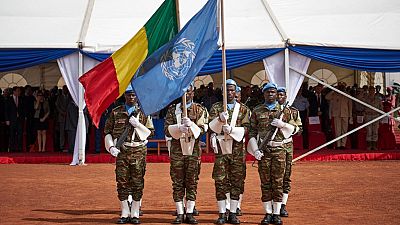

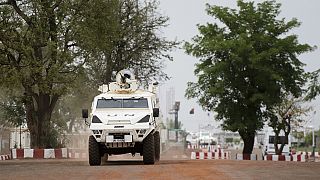
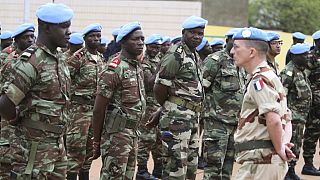
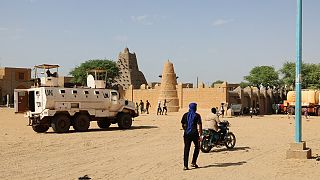

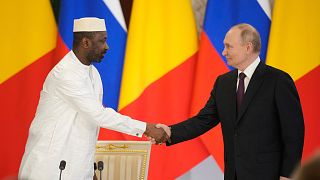
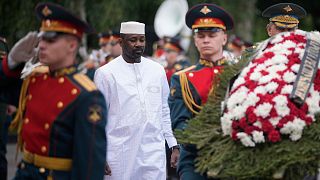



01:22
World will have to learn to live with heatwaves, UN says
01:02
Iran reportedly suspends cooperation with UN nuclear watchdog
01:39
Sustainable development financing conference opens in Seville
00:52
UN warns global progress on gender equality is at risk
Go to video
World leaders confront gap between rich and poor at Financing for Development meeting
01:35
UN and Haitian officials mark one year since Kenyan police arrived to support security efforts